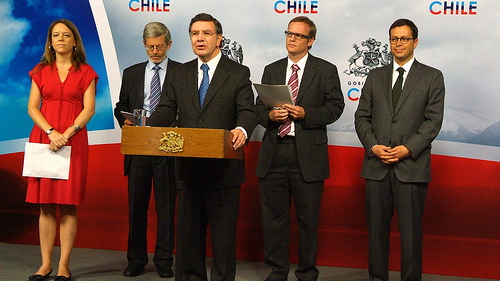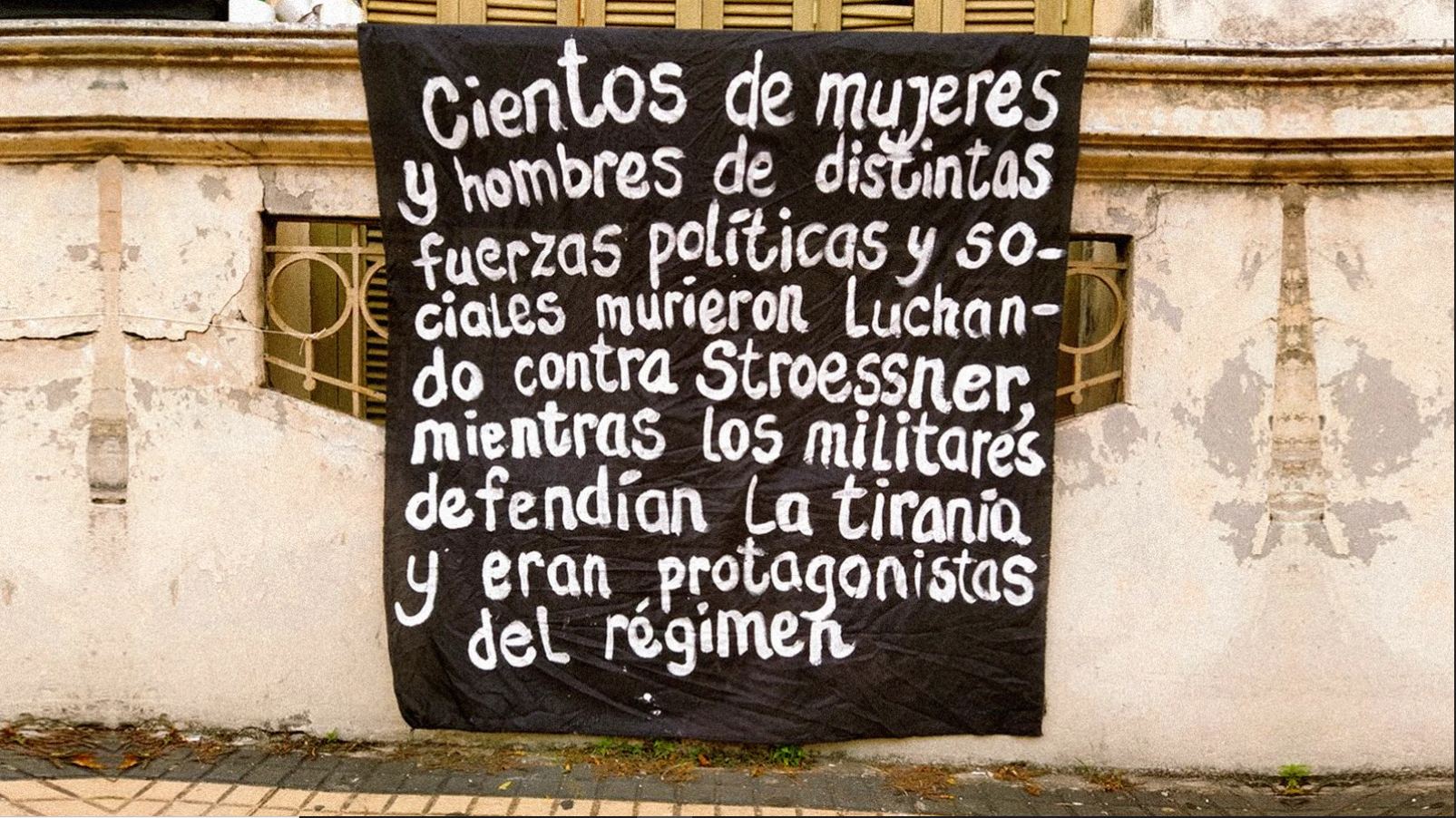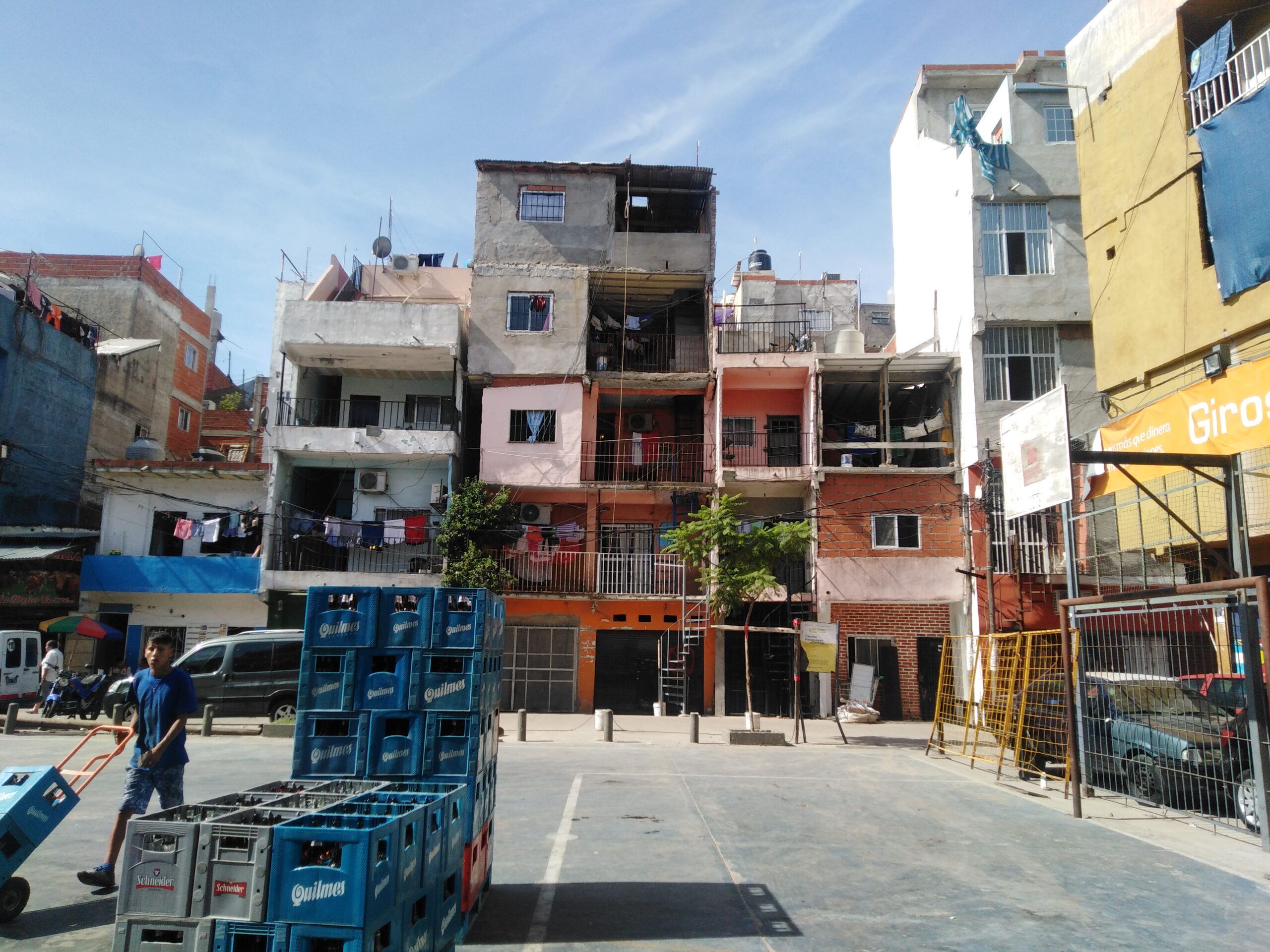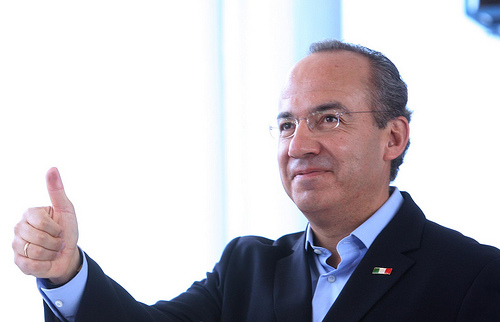
Chile, Dispatches
Chile’s Education Initiative Hopes To Attract More Qualified Teachers
September 8, 2010 By David Mauro

Chile’s Minister of Education Joaquín Lavín . Photo by Ministerio Secretaria General del Gobierno @ Flickr.
SANTIAGO — Chile’s Minister of Education Joaquín Lavín recently announced a new set of proposals designed to make teaching a more attractive profession for the country’s top students. Lavín, a former presidential candidate and past political opponent of current President Sebastian Piñera, was not shy in his promotion of the proposals, which he said were modeled after a similar program in Finland.
Lavín said the new incentives would be an integral part of what he dubbed Chile’s “Education Revolution.”
The incentives are based upon student performance on the PSU, an acronym for the Prueba de Selección Universitaria, or University Selection Test. The PSU, described by Chilean teachers and students as very similar to the United States’ SAT test, is designed and graded by the Universidad de Chile but administered by the Ministry of Education. The test used to cost nearly $50 U.S. but was made free in 2006, with the change attributed by many to the widespread student protests that marred the beginning of then-President Michelle Bachelet’s term.
Lavín’s proposal would give a full university scholarship to any student planning to study education who scores over 600 on the PSU, if they commit to teaching three years in a public school following graduation.
The incentive would be even higher for students with a score above 700, as these students would receive a monthly stipend of 80.000 Chilean pesos, about $160 US. Those with scores above 720 on the PSU would be allowed to study abroad for one semester at the expense of the Chilean government.
Only 14.6 percent of current education students scored above 600 on the PSU. A remarkably low 0.5 percent scored over 700. While over 20 percent of current education students scored under 500, changes could be made within the next few months that would make all education students need to score over 500 to study education at most of the country’s leading universities.
The Chilean government clearly wants to change this; to return teaching to, in Lavín’s words, “the center of our society.” While these incentives could serve as building blocks, even Lavín’s strongest supporters concede they are not likely to change much without additional help.
Chilean teachers are paid around $1,000 U.S. per month, putting teachers nearly 30 percent below the salary of the average Chilean professional.
The top students that Lavín hopes to convince to enter teaching are not without other options. Civil mining engineering, one of Chile’s highest paying careers and one readily available to those students scoring over 700 on the PSU, pays more than five times what a teacher can expect to make. While in the United States teachers can expect to see their salaries increase up to 50 percent over the course of their careers, the potential for salary advancement is much more limited in Chile — to the point that many teachers with decades of classroom experience are paid the same as their newly-graduated colleagues.
However, not everyone agrees that the new proposals are likely to change the status quo. Jaime Gajardo, the president of the Colegio de Profesores, called the changes “more of the same.” The Colegio de Profesores is similar to a teachers’ union, and represents the interests of teachers throughout the country who voluntarily contribute one percent of their monthly wages to the organization.
Gajardo said the Ministry of Education should start by “improving the working conditions” of current teachers, in a press release issued by the Colegio de Profesores.
Gajardo’s criticism of Lavín’s proposals was received with little more than a shoulder shrug by most Chilean political observers, given the organization’s close ties to center-left and leftist political parties and longtime opposition to many of the policies of Piñera and Lavín.
Darío Vasquez, a member of the Colegio de Profesores, disagreed with Gajardo’s characterization of the incentives as “more of the same,” telling Radio Bío Bío that the measures were a step in the right direction, although more needed to be done.
Stefan Walkowiak, of Viña del Mar, is exactly the kind of student the government hopes the new incentives will compel to enter teaching. A graduate of a competitive private school and fluent English speaker, Walkowiak has high enough test scores to be able to take advantage of all the new incentives.
“Today, the education major is largely ignored by the top students, and many consider it the last option,” said Walkowiak. “This creates generations and generations of teachers without adequate knowledge or training, which translates to a low level of education for a long period of time and creates a vicious cycle that does not allow for improvement.”
“I believe the measures appear to be good incentives to raise the level of teaching in Chile,” said Walkowiak, who plans to begin his university studies in medicine next year. “I hope that this can help education reposition itself and compete for the same prestige as law and medicine, because this is the level it should already be at.”
Others, such as Feñita Maulen Paredes, an English teacher in Santiago, do not believe the incentives should be based on a standardized test. She argues that many other skills, most of them difficult to measure by testing, are vital to the success of classroom teachers. A long-standing critique of the PSU has been that it discriminates against the poor, since wealthy students are often able to afford tutors or costly “pre-university” programs.
“I believe that the measures will encourage good students to study education if you base that measurement solely on their economic standing and leave out their cleverness, capabilities, and more still the lack of education they could have to prove they are great teachers,” said Maulen.
The defense of the Ministry’s use of the PSU to determine the incentives is simple. No other uniform measure of student aptitude exists in Chile, with the exception of the Simce, a test that measures performance across more than 6,000 Chilean schools and is not administered as a university entrance exam.
In a conference call with reporters on Monday, Lavín did not directly address the concerns some have expressed about the incentives, opting to focus on what has been an overall enthusiastic response since the program’s announcement last week.
Lavín said Chile chose to follow in Finland’s footsteps with this program because Finland is the “world champion of public education.”
“We are starting down this road today, but it will take many years,” said Lavín. “Improving education is a long process, but it has to start today, and this is the decision of the government.”





